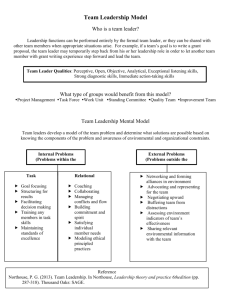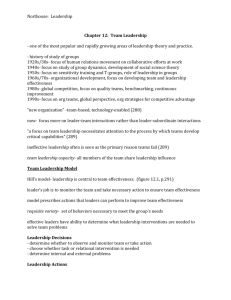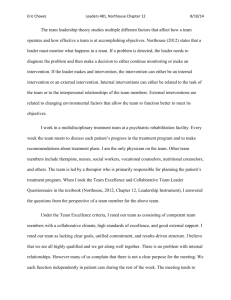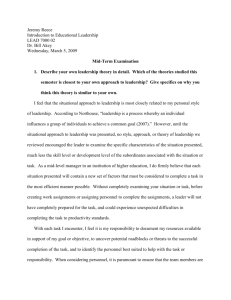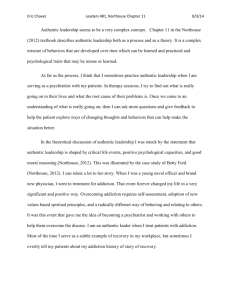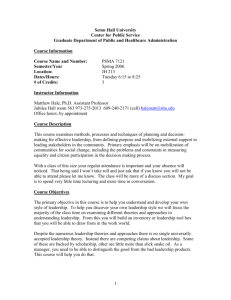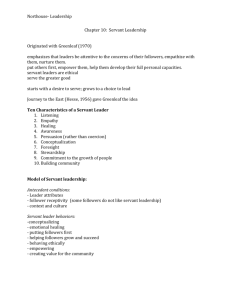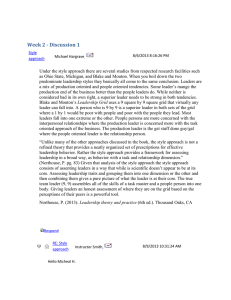File - Eric Chavez MD MMI
advertisement
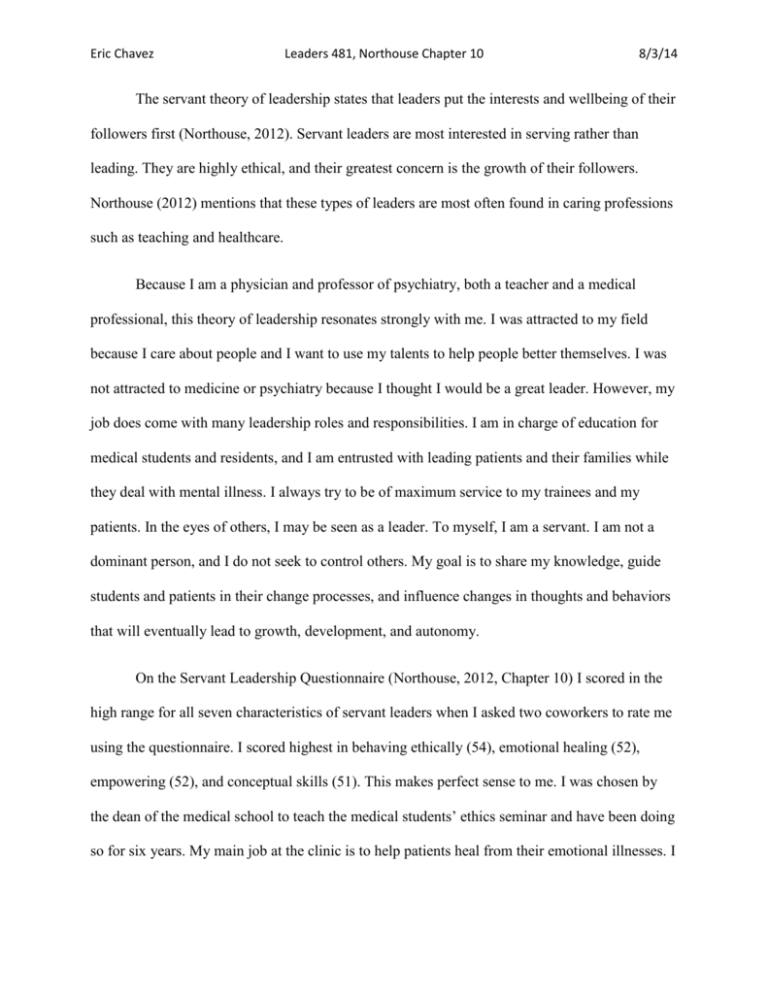
Eric Chavez Leaders 481, Northouse Chapter 10 8/3/14 The servant theory of leadership states that leaders put the interests and wellbeing of their followers first (Northouse, 2012). Servant leaders are most interested in serving rather than leading. They are highly ethical, and their greatest concern is the growth of their followers. Northouse (2012) mentions that these types of leaders are most often found in caring professions such as teaching and healthcare. Because I am a physician and professor of psychiatry, both a teacher and a medical professional, this theory of leadership resonates strongly with me. I was attracted to my field because I care about people and I want to use my talents to help people better themselves. I was not attracted to medicine or psychiatry because I thought I would be a great leader. However, my job does come with many leadership roles and responsibilities. I am in charge of education for medical students and residents, and I am entrusted with leading patients and their families while they deal with mental illness. I always try to be of maximum service to my trainees and my patients. In the eyes of others, I may be seen as a leader. To myself, I am a servant. I am not a dominant person, and I do not seek to control others. My goal is to share my knowledge, guide students and patients in their change processes, and influence changes in thoughts and behaviors that will eventually lead to growth, development, and autonomy. On the Servant Leadership Questionnaire (Northouse, 2012, Chapter 10) I scored in the high range for all seven characteristics of servant leaders when I asked two coworkers to rate me using the questionnaire. I scored highest in behaving ethically (54), emotional healing (52), empowering (52), and conceptual skills (51). This makes perfect sense to me. I was chosen by the dean of the medical school to teach the medical students’ ethics seminar and have been doing so for six years. My main job at the clinic is to help patients heal from their emotional illnesses. I Eric Chavez Leaders 481, Northouse Chapter 10 8/3/14 always try to empower patients and my coworkers in their lives. I feel very confident about my skills in conceptualizing and addressing complex problems. My scores for the other three traits were: putting subordinates first (43), helping subordinates grow and succeed (42), and creating value for the community (35). I put the most effort into helping medical students and psychiatric residents succeed. If I had given them the survey, I probably would have scored higher in those areas. I believe that I could try harder to devote more time to helping my coworkers in the clinic grow and meet their career goals. I tend to overlook this in my day to day work life. In one way my work as a psychiatrist could be seen as creating value for the community. I noticed that the questions on the survey asked about community service such as volunteer work. Although I have done that type of work in the past, I have not done so lately. This is also an area where I could make improvements. I identify strongly with the servant leadership theory. To me it does not seem to be a contradictory term as it was criticized in the text (Northouse, 2012). This is a way that I have been living my life for years, and it makes perfect sense to me that I can leader others by putting their needs first and modeling moral and ethical behavior with altruism as my highest value. Eric Chavez Leaders 481, Northouse Chapter 10 8/3/14 Reference: Northouse, P (2012). Leadership: Theory and Practice [Kindle for iPad version 4.3]. Retrieved from Amazon.com
